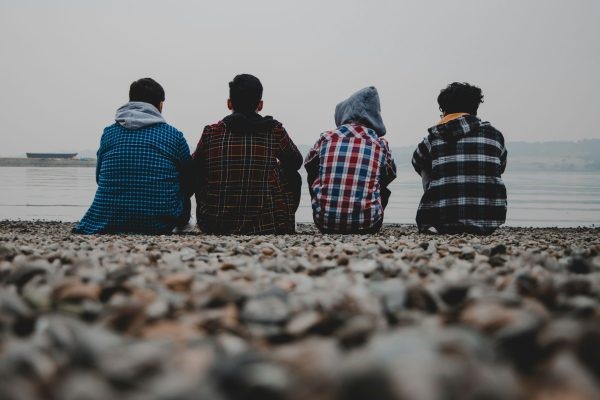Embracing My Journey: A Last Year of High School Filled with Discovery and Empowerment
After feeling overwhelmed, marijuana provided a temporary sense of relief. But soon enough, this youth realized that this cycle was consuming them, and they knew they needed to break free.

Written by a young person with lived/living experience with substance use. This article was supported by BC Children’s Hospital’s Health Promotion and Health Literacy team.
By the time I reached grade 12, it seemed like everyone around me was drinking except me. So, when a classmate offered to split a joint at a house party, I thought, “Why not? It can’t be worse than alcohol.” Little did I know that later I’d be battling dependency on marijuana for years to come.
Initially, I’d blaze before a party ’cause I was nervous to see everyone, and it made me feel more at ease. I was more talkative, and I felt more calm. The laughter and carefree moments felt innocent and harmless at the time.
However, as the months passed, I found myself wanting to take a toke if I felt any kind of stress. It was the first remedy on my mind I turned to when prompted with the pressures of academic and personal life, along with the overwhelming uncertainty of what lies ahead after graduation.
Living up to my parents’ expectations of achieving high grades and excelling in extracurricular activities weighed heavily on my mind. I set unrealistic expectations for myself, fearing that I might not “make it” in life. In those moments of overwhelm and anxiety, marijuana seemed like a quick escape, providing a momentary respite from my worries.
The more I relied on marijuana, the more isolated I felt. The final year of high school was filled with college applications, exams and the pressure to make lifelong decisions. I longed to find someone I could truly trust and confide in, but I wasn’t sure about reaching out to school counsellors or my parents. G
ossip spread like wildfire in school, making it hard to not feel even more judged and get teased. So, I turned to my phone, watching motivational videos about productivity to convince myself that I was addressing my problems. But in reality, I was just seeking solace and zoning out to soothe my anxieties and resist pressures.
The reliance on marijuana started taking a toll on my physical health, too. I began prioritizing smoking over eating during lunch breaks, leading to lethargy and malnourishment later in the day. It was a vicious cycle—I felt overwhelmed, and marijuana provided a temporary sense of relief. But soon enough, I realized that this cycle was consuming me, and I knew I needed to break free.
As I sought guidance from friends, some denied how addictive marijuana could be while others empathized with my struggles. Unfortunately, I found myself surrounded by people facing similar issues, and we had no clear answers or solutions to our problems.
Hope and determination in my recovery journey
One day, I mustered the courage to open up to my doctor about my dependency on marijuana. His support and empathy gave me a glimmer of hope. It was time to seek professional help and confront my dependency head-on, especially as I prepared to step into the next chapter of my life.
My doctor’s approach involved self-compassion and monitoring over an extended period. It made me feel like I had the power to overcome my dependency on my terms. He acknowledged the challenge ahead but instilled the belief that change was possible, giving me hope and determination to start my recovery journey.
My doctor suggested online remote talk-therapy, where I began challenging the negative judgments of others and started valuing myself based on my own opinion. The less I cared about what others thought, the less I felt the need to cope with negative reactions through marijuana use.
My journey to recovery was not easy, but along the way, I discovered new passions and hobbies. Going to the gym, reading, exploring Vancouver Island with friends and spending less time at home replaced my need for marijuana. These activities brought me the same feelings of self-soothing and productivity but without the health risks.
Moving forward: a new chapter
Gradually, my life took a positive turn. I regained my optimism about the future, and my self-confidence grew. I started putting myself out there, applying for colleges, scholarships and even re-entering the dating scene. My relationship with marijuana shifted to controlled and recreational use during special events rather than using it as an escape from life’s challenges.
In my last year of high school, I learned the importance of seeking help, building healthier coping mechanisms and nurturing my self-worth. My journey towards self-discovery and self-acceptance taught me that I am resilient and capable of overcoming obstacles in my life.
If you find yourself facing similar struggles, know that there is hope. Seek support from friends, family or professionals. Embrace your journey with self-acceptance and self-compassion. You are stronger than you realize, and you have the power to reshape your narrative.
Life may have its challenges, but it is how we face them that defines us. As I prepare to step into a new chapter, I choose to embrace my journey with newfound resilience, and I believe you can too.
